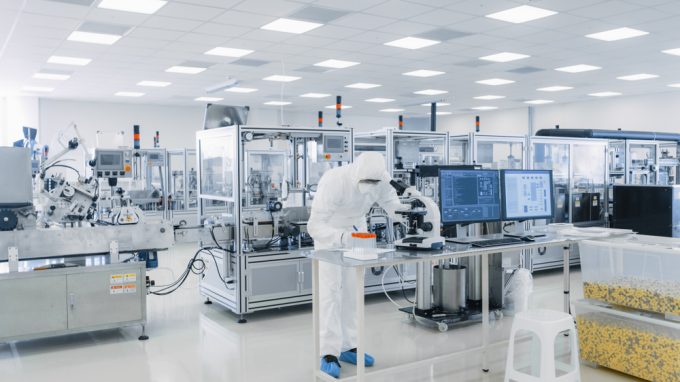Pharmaceutical labs play a crucial role in the development, testing, and manufacturing of drugs that millions of people rely on every day. These labs are responsible for ensuring the safety and efficacy of medications, as well as maintaining compliance with strict regulatory standards. In this article, we’ll take a closer look at what pharmaceutical labs do, the various types of labs within the industry, and the essential role they play in drug development and quality control.
What are Pharmaceutical Labs?
Pharmaceutical labs are specialized facilities where scientists, researchers, and technicians work together to develop, test, and manufacture drugs. These labs are equipped with state-of-the-art equipment and technologies to ensure the highest level of accuracy and safety in their work. Pharmaceutical labs are essential to the drug development process, as they ensure that medications are safe, effective, and meet the necessary regulatory standards before they reach the market.
Types of Pharmaceutical Labs
There are several types of pharmaceutical labs, each with a specific focus and function within the industry. These include:
Research and Development Labs
Research and development (R&D) labs are where new drugs are discovered and developed. Scientists in these labs work to identify potential drug candidates, conduct preclinical studies, and optimize drug formulations. They also carry out various tests to evaluate the safety, efficacy, and pharmacokinetics of drug candidates. R&D labs are essential to the pharmaceutical industry, as they drive innovation and help bring new medications to market.
Quality Control Labs
Quality control (QC) labs are responsible for ensuring the quality and safety of drugs throughout the manufacturing process. QC labs test raw materials, in-process samples, and finished products to ensure they meet the required specifications and regulatory standards. They also develop and validate analytical methods used to test drug products. Quality control labs play a critical role in maintaining the integrity of the pharmaceutical supply chain and ensuring patient safety.
Manufacturing Labs
Manufacturing labs, also known as production labs, are responsible for the large-scale production of drugs. These labs use advanced equipment and processes to manufacture medications according to strict quality standards. They also work closely with quality control labs to ensure that the final product meets the necessary specifications and regulatory requirements.
Drug Development Process in Pharmaceutical Labs
The drug development process is a complex and lengthy journey that involves various stages, each carried out in pharmaceutical labs. These stages include:
- Drug Discovery: Scientists in R&D labs identify potential drug candidates by studying disease pathways, screening compounds, and using computational methods. This stage aims to find a promising molecule that can effectively target a specific disease or condition.
- Preclinical Studies: Before a drug candidate can be tested in humans, it must undergo extensive preclinical testing in the lab. Researchers conduct in vitro and in vivo studies to evaluate the drug’s safety, efficacy, and pharmacokinetics. These studies help determine the appropriate dosage and potential side effects.
- Clinical Trials: If a drug candidate shows promise in preclinical studies, it moves on to clinical trials, where it is tested in human volunteers. Clinical trials are divided into three phases, each with a specific purpose and increasing numbers of participants. Pharmaceutical labs play a critical role in analyzing samples and data from clinical trials to ensure the drug’s safety and efficacy.
- Regulatory Approval: Once a drug has successfully completed clinical trials, pharmaceutical companies submit a New Drug Application (NDA) or a Biologic License Application (BLA) to regulatory agencies, such as the US Food and Drug Administration (FDA). Pharmaceutical labs are responsible for providing the necessary data and documentation to support the application.
- Manufacturing: If a drug receives regulatory approval, it moves on to large-scale manufacturing. Production labs manufacture the drug according to strict quality standards and regulatory requirements, while QC labs ensure the quality and safety of the final product.
Quality Control and Regulatory Compliance
Pharmaceutical labs play a vital role in ensuring the quality and safety of drugs by adhering to strict regulatory standards. These standards, established by agencies such as the FDA and the European Medicines Agency (EMA), are designed to protect public health and ensure that medications are safe, effective, and of high quality.
Quality control labs are responsible for testing raw materials, in-process samples, and finished products to ensure they meet the required specifications. They also develop and validate analytical methods used to test drug products. Regulatory compliance is a crucial aspect of the pharmaceutical industry, as failure to meet these standards can result in severe consequences, including product recalls, fines, and damage to a company’s reputation.
The Future of Pharmaceutical Labs
As the pharmaceutical industry continues to evolve, pharmaceutical labs will need to adapt to new technologies, regulations, and market demands. Some trends that may shape the future of pharmaceutical labs include:
- Increased automation and digitalization, which can improve efficiency, reduce human error, and streamline data management.
- The growing importance of personalized medicine, which may require pharmaceutical labs to develop new methods for drug development and manufacturing.
- The rise of biologics and gene therapies, which will require specialized knowledge and equipment in pharmaceutical labs.
- The increasing focus on sustainability and environmental impact, which may lead to more eco-friendly practices in pharmaceutical labs.
Conclusion
Pharmaceutical labs are the backbone of the drug development process and play a crucial role in ensuring the safety, efficacy, and quality of medications. As the industry continues to evolve, these labs will need to adapt to new technologies, regulations, and market demands. By staying at the forefront of innovation and maintaining strict adherence to regulatory standards, pharmaceutical labs will continue to play an essential role in bringing life-saving medications to patients worldwide.


